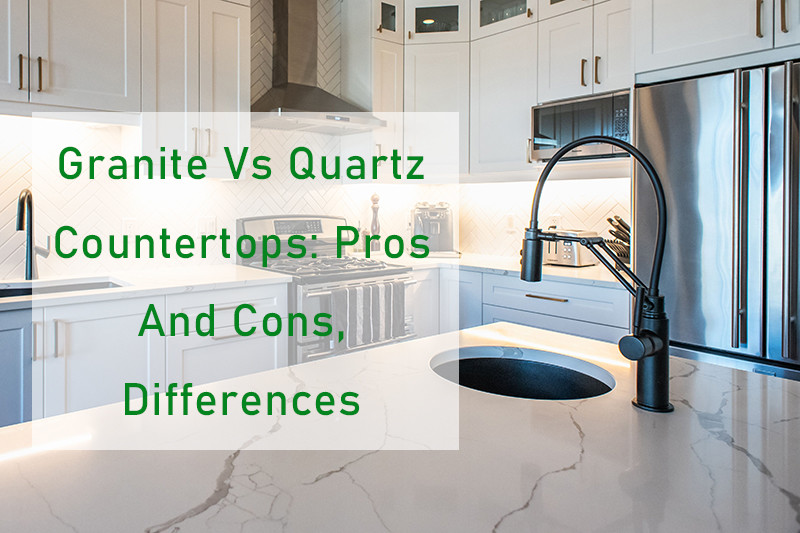
Selecting the right countertop material is a crucial decision in any kitchen or bathroom renovation. Among the myriad of options available, granite and quartz stand out as two of the most popular choices. Both materials offer unique characteristics and aesthetics, but they also come with their own set of advantages and disadvantages. In this post, we’ll delve into the pros and cons of granite vs quartz countertops, highlighting the differences to help you make an informed decision for your home.
Granite Countertops:
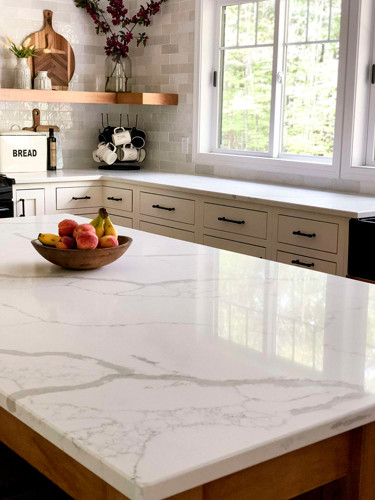
Pros:
- Natural Beauty: Granite countertops are renowned for their natural beauty and unique patterns. Each slab is one-of-a-kind, providing a distinct and authentic appearance to your kitchen or bathroom.
- Durability: Granite is an exceptionally durable material that can withstand heat, scratches, and stains. It is well-suited for high-traffic areas and can last for decades with proper care.
- Resale Value: Granite countertops can enhance the resale value of your home. Many homebuyers consider granite a premium material, and a well-maintained granite countertop can be a significant selling point.
- Heat Resistance: Granite is naturally resistant to heat, making it an ideal surface for placing hot pots and pans directly on the countertop without the risk of damage.
Cons:
- Porosity: Granite is a porous material, which means it can absorb liquids if not properly sealed. This can lead to stains if spills are not promptly cleaned. Regular sealing is necessary to maintain its resistance to stains.
- Maintenance: While granite is durable, it requires regular maintenance to preserve its appearance. Periodic resealing is essential to protect against stains and maintain the longevity of the countertop.
- Limited Color Options: Although granite comes in various colors and patterns, the range is more limited compared to quartz. If you have a specific color or pattern in mind, you may find fewer options with granite.
Quartz Countertops:
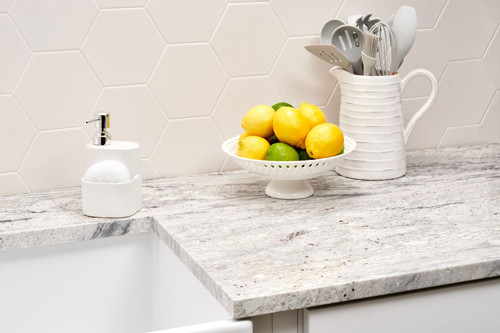
Pros:
- Non-Porous Surface: One of the standout features of quartz countertops is their non-porous surface. This makes them highly resistant to stains and bacteria, as liquids cannot penetrate the material.
- Variety of Colors and Patterns: Quartz countertops offer an extensive range of colors and patterns, often with a more consistent appearance than natural stones like granite. This allows for greater customization to match your aesthetic preferences.
- Low Maintenance: Quartz is virtually maintenance-free compared to granite. It doesn’t require sealing, and cleaning is as simple as using mild soap and water. This makes quartz an attractive option for those seeking a hassle-free countertop.
- Uniform Appearance: If you prefer a more uniform and consistent appearance across your countertop, quartz may be the better choice. The manufacturing process allows for greater control over the final look of the material.
Cons:
- Not Heat Resistant: Unlike granite, quartz is not as heat-resistant. Placing hot pots or pans directly on the surface can cause damage, such as discoloration or cracking. It’s advisable to use trivets or hot pads to protect the countertop.
- Cost: Quartz countertops are often more expensive than granite. The manufacturing process and the ability to customize colors and patterns contribute to the higher cost. However, the durability and low maintenance may offset the initial investment over time.
- Limited Natural Look: While quartz can mimic the appearance of natural stone, some homeowners prefer the authentic, unique look of granite. If you’re seeking a countertop with a truly natural aesthetic, granite may be more appealing.
Between Granite vs Quartz Countertops: What Are The Differences
Composition:
- Granite: A natural stone, granite is composed of a variety of minerals such as quartz, feldspar, and mica. This gives each slab a unique and unpredictable appearance.
- Quartz: Despite its name, quartz countertops are not entirely made of natural quartz. They are engineered stone surfaces, comprising approximately 90-95% crushed natural quartz crystals mixed with resins, polymers, and pigments. This engineered nature allows for a more uniform appearance.
Appearance:
- Granite: Known for its distinctive, natural beauty, granite countertops showcase intricate patterns and veining. The appearance is often influenced by the geological processes that formed the stone, resulting in a wide array of colors and textures.
- Quartz: The manufacturing process of quartz allows for a greater degree of control over the final appearance. Quartz countertops often have a more consistent color and pattern, making them an ideal choice for those who prefer a sleek and uniform aesthetic.
Porosity:
- Granite: Being a natural stone, granite is porous and requires periodic sealing to prevent liquids from penetrating the surface. Without proper sealing, it can be susceptible to staining.
- Quartz: Thanks to its engineered composition, quartz is non-porous. This makes it highly resistant to stains, spills, and bacteria, eliminating the need for regular sealing.
Durability:
- Granite: Renowned for its durability, granite is resistant to scratches, heat, and most impacts. With proper care, granite countertops can maintain their integrity and appearance for many years.
- Quartz: While quartz is durable, it may not be as resistant to heat as granite. Care should be taken to avoid placing hot items directly on the surface, as it can lead to discoloration or damage.
Maintenance:
- Granite: Regular maintenance is essential for granite countertops, including periodic sealing and proper cleaning to preserve its appearance and resist stains.
- Quartz: One of the key advantages of quartz is its low maintenance. It doesn’t require sealing, and routine cleaning with mild soap and water is usually sufficient to keep it looking pristine.
Cost:
- Granite: Generally, granite countertops are more cost-effective than quartz. The pricing can vary depending on factors such as rarity, thickness, and origin of the stone.
- Quartz: Quartz countertops are often more expensive due to the manufacturing process and the ability to customize colors and patterns. However, the long-term durability and low maintenance can justify the initial investment.
Heat Resistance:
- Granite: Boasts excellent heat resistance, allowing for the placement of hot pots and pans directly on the surface without causing damage.
- Quartz: While durable, quartz is not as heat-resistant as granite. It’s advisable to use trivets or hot pads to protect the surface from direct contact with hot items.
Understanding these differences can help you make an informed decision based on your preferences, lifestyle, and budget constraints. Whether you prioritize the unique aesthetics of natural stone or the consistent appearance and low maintenance of engineered quartz, both options have their distinct appeal in the realm of countertops.
Conclusion:
Choosing between granite and quartz countertops ultimately comes down to personal preferences, budget considerations, and lifestyle factors. Granite offers a timeless, natural look with unique patterns, while quartz provides a broader range of colors, low maintenance, and enhanced resistance to stains. Consider your priorities, such as aesthetic preferences, maintenance commitment, and budget constraints, to determine which material aligns best with your needs. Whether you opt for the classic appeal of granite or the modern versatility of quartz, both choices can elevate the style and functionality of your kitchen or bathroom.
 WOWOW Faucets
WOWOW Faucets
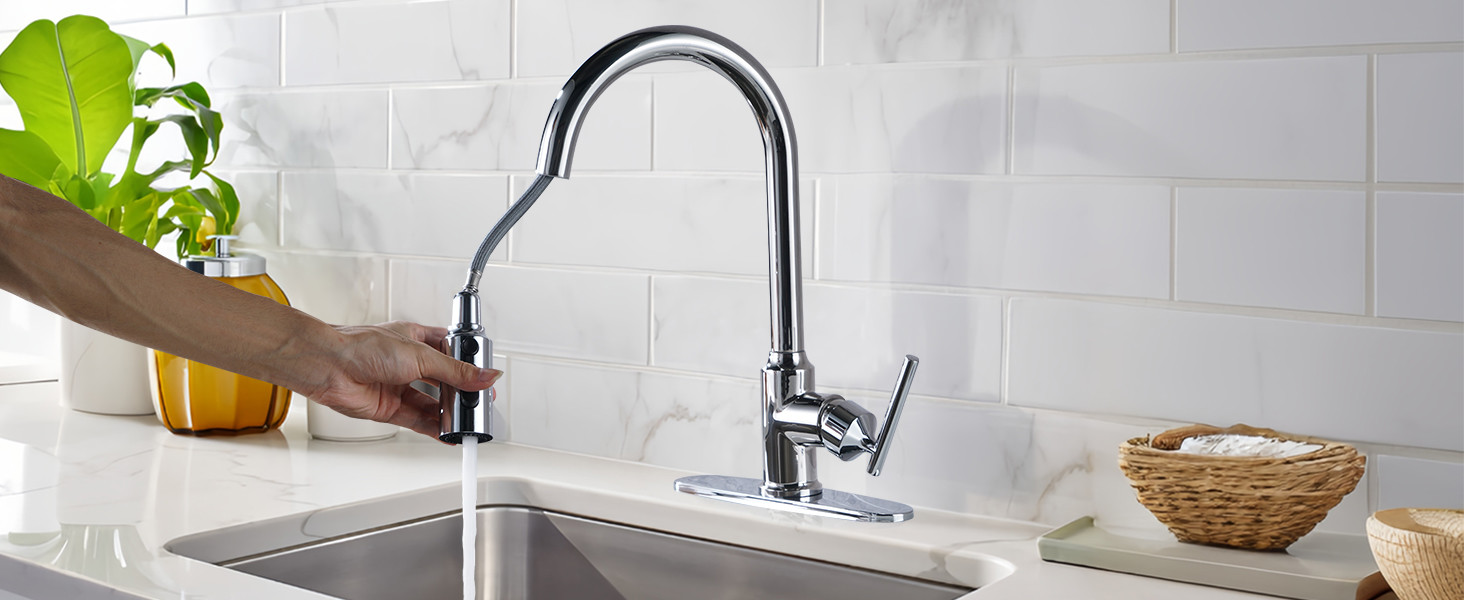


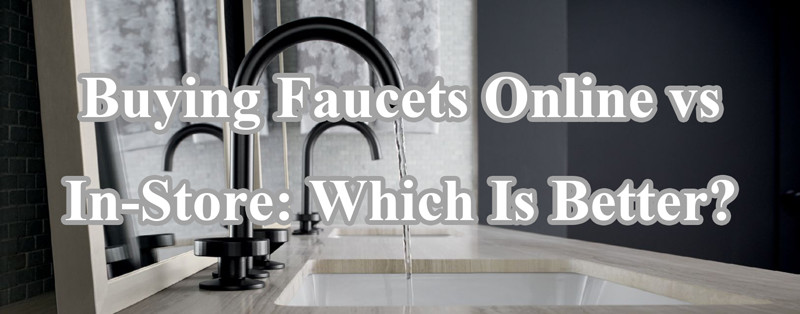


您好!Please sign in